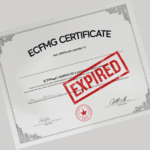Practice Medicine in Illinois Without US Residency (IMGs) – Learn how to qualify, get licensed, and secure positions under new state laws.
- Law Allowing IMGs to practice medicine in Illinois without US residency
- Law Introduced On
- Law Status as of January 2025
- Key Provisions of the Law
- Eligibility Requirements for IMGs
- Type of License
- Visa Options for IMGs
- Challenges Faced by IMGs to Practice Medicine in Illinois Without U.S. Residency
- List of other states where IMGs can practice medicine without US Medical Residency
- FAQs
- Next Steps for IMGs
- Share your thoughts
Many international medical graduates (IMGs) dream of practicing medicine in the United States, but the road to becoming a licensed doctor in the U.S. often seems long and complicated. Typically, IMGs must complete a U.S. residency program before they can start practicing. However, Illinois has introduced a law that gives IMGs a unique opportunity to practice medicine in the state without the usual residency requirements.
Law Allowing IMGs to practice medicine in Illinois without US residency
Amendment of Senate Bill 1298 creates an exciting and significant opportunity for IMGs to practice medicine in Illinois, especially those who have been unable to pursue traditional residency programs. By allowing supervised practice in underserved areas, the law benefits both the IMGs and the healthcare system by addressing workforce shortages and improving access to care in areas of need.
Law Introduced On
The law that allows IMGs to practice medicine in Illinois without completing a U.S. residency was first introduced in 2023. Illinois lawmakers recognized the shortage of doctors, especially in rural and underserved areas, and wanted to give IMGs a chance to practice without the standard residency requirement. This was a big move, as many IMGs struggled to get a spot in competitive residency programs.
Law Status as of January 2025
The Law is effective since January 1, 2025, so it’s important for IMGs interested in this pathway to stay informed and prepare accordingly.
Key Provisions of the Law
Limited Practice Under Supervision
- The law allows the IMGs to practice medicine in a supervised capacity only, typically within the institution or affiliated clinical settings.
- The law creates a permanent pathway to full licensure for IMGs who were not previously eligible for licensure in Illinois due to a lack of U.S. residency or other criteria.
- This is a significant change because it opens the door for IMGs to practice in Illinois who may not have been able to fulfill the traditional requirements, such as completing a U.S. residency program.
Focus on Underserved Areas and Populations
- The care provided by these IMGs during the two-year period must take place in areas with a demonstrated medical need or with populations that are underserved. This aligns with Illinois’ goal to address health disparities and improve access to care in areas where there is a shortage of healthcare providers.
- These underserved areas can include rural regions or urban neighborhoods that lack adequate healthcare providers, especially in primary care or specialty fields.
Requirements for Supervision
- IMGs working under this provision must be supervised by a licensed physician. The supervising physician is expected to oversee the clinical care provided by the IMG, ensuring quality and safety in patient care.
- The supervising physician must be practicing in the same area (or a nearby one) and may have specific qualifications or requirements for participating in this pathway. The supervising physician might be required to regularly assess the IMG’s performance and report on progress to the state licensing board.

Eligibility Requirements for IMGs
While this new law offers hope to many IMGs, it comes with specific eligibility requirements. If you’re an IMG looking to practice medicine in Illinois without completing a U.S. residency, here are the key qualifications you’ll need to meet:
Educational Requirements
- Complete medical education at a school listed in the World Directory of Medical Schools.
- Medical degree must be recognized as equivalent to U.S. standards.
- School must meet standards set by the Educational Commission for Foreign Medical Graduates (ECFMG).
Licensing Examination:
- Must pass the U.S. Medical Licensing Examination (USMLE) Step 1, Step 2 and Step 3.
Clinical Experience
- Must have clinical experience in the U.S. to demonstrate practical skills.
- Clinical experience can include electives, extenrships or observerships in U.S. hospitals.
Post Gradute/Residency Training outside of United States
- IMGs must have completed a residency program in another country, and that training must be verified through official documentation.
Home Country Medical License Requirement
- The unrestricted home country medical license is a prerequisite to ensure that the IMG is a fully licensed medical professional in their home country. An unrestricted license typically indicates that the physician has met all the regulatory and training requirements in their home country without any limitations on their practice.
- Without this, you would not be able to meet the requirements for the Provisional License.
Other Documentation
- International medical graduates must provide proof of English language proficiency (usually through TOEFL or another recognized test) and submit their personal background and criminal history for verification.
Type of License
Provisional License
- A provisional license is a temporary license that allows IMGs to begin practicing under supervision while they fulfill additional requirements for full licensure.
- While holding a provisional license, IMGs must work under the supervision of a licensed physician in a clinical setting.
- It gives IMGs a chance to gain practical experience in the U.S. medical system before they are granted full independence to practice.
- After holding the provisional license for a specified period, typically two years, the IMG must meet additional requirements or other credentialing steps required to qualify for full licensure.
- After you receive full licensure, you will no longer need to practice under supervision and can begin treating patients independently.
Visa Options for IMGs
It’s important to note that while Illinois offers this pathway for IMGs, the state does not facilitate visa sponsorship. Therefore, International medical graduates must independently secure their immigration status, ensuring they have the legal authorization to work in the U.S
Challenges Faced by IMGs to Practice Medicine in Illinois Without U.S. Residency
Limited Availability of Licenses
One of the challenges is that the number of licenses available for IMGs may be limited. In some cases, the law requires that IMGs prove they are filling a critical gap in the healthcare system, particularly in underserved areas. As a result, not all IMGs will be granted the chance to practice in Illinois.
Supervision Requirements
You must find a licensed physician willing to supervise your practice. In some cases, this might be difficult depending on where you live and what specialties you are interested in.
Limited Scope of Practice
While practicing under provisional licensure, you are not allowed to practice independently. You will be restricted to performing tasks only within the scope allowed by your supervising physician and may have to limit your responsibilities in some cases.
Sponsorship for VISA
IMGs face a significant challenge in finding a medical facility or a physician that is willing to sponsor the required visa for them.
List of other states where IMGs can practice medicine without US Medical Residency
For more news on which states allow IMGs to practice medicine without U.S. residency, please read the article: States Where IMGs Can Practice Without U.S. Residency (2025).
FAQs
Can IMGs practice medicine in Illinois without a home country medical licence?
No, IMGs cannot practice medicine in illinois without an UNRESTRICTED home country medical license. It is one of the elegibility criteria to a Provisional Medical License in Illinois.
How long does it take for an IMG to obtain the provisional medical license in Illinois?
The licensing process for IMGs in Illinois can vary, but it generally takes several months due to the need for document verification, passing exams, and fulfilling other requirements.
Next Steps for IMGs
If you’re an IMG interested in this pathway, here’s a general outline of what you might need to do:
- Ensure Eligibility: Make sure you meet the basic requirements for eligibility, including ECFMG certification and passing the necessary exams (e.g., USMLE).
- Secure Supervision: Find a licensed physician who is willing to supervise your practice in an underserved area or medical facility.
- Apply for Licensure: Apply to the Illinois Department of Financial and Professional Regulation (IDFPR) for licensure under this new pathway.
- Complete the Supervised Practice: After obtaining licensure, you’ll work for two years in a limited practice under supervision. This is critical to your progress toward full licensure.
- Transition to Full Licensure: After completing the two years of supervised practice, you’ll be eligible to transition to full licensure, assuming all other criteria are met.
Share your thoughts
What do you think about this new law for International medical graduates in Illinois? Share your thoughts in the comments below!














